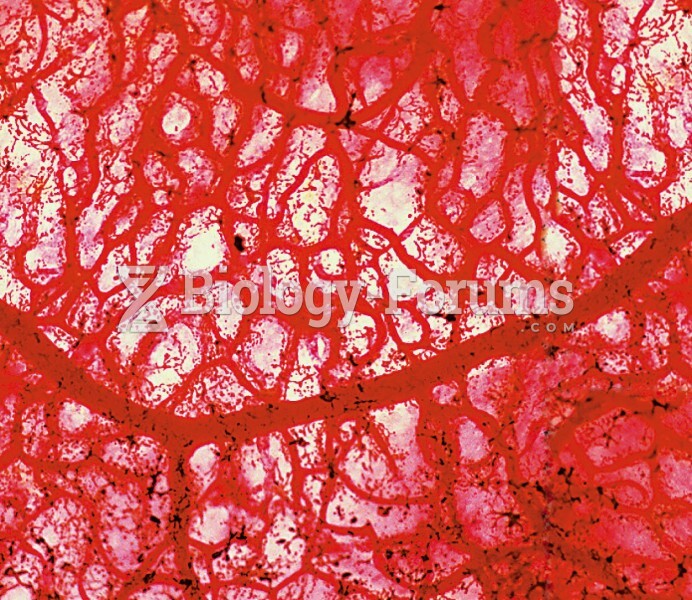|
|
|
Acute bronchitis is an inflammation of the breathing tubes (bronchi), which causes increased mucus production and other changes. It is usually caused by bacteria or viruses, can be serious in people who have pulmonary or cardiac diseases, and can lead to pneumonia.
On average, the stomach produces 2 L of hydrochloric acid per day.
Normal urine is sterile. It contains fluids, salts, and waste products. It is free of bacteria, viruses, and fungi.
Signs and symptoms of a drug overdose include losing consciousness, fever or sweating, breathing problems, abnormal pulse, and changes in skin color.
In inpatient settings, adverse drug events account for an estimated one in three of all hospital adverse events. They affect approximately 2 million hospital stays every year, and prolong hospital stays by between one and five days.
 Cardiac catheterization. Insertion of a tube called a catheter through a blood vessel. In this examp
Cardiac catheterization. Insertion of a tube called a catheter through a blood vessel. In this examp
 Coronary stent. Illustration of an angiogram revealing a coronary stent, which helps prevent closure
Coronary stent. Illustration of an angiogram revealing a coronary stent, which helps prevent closure





